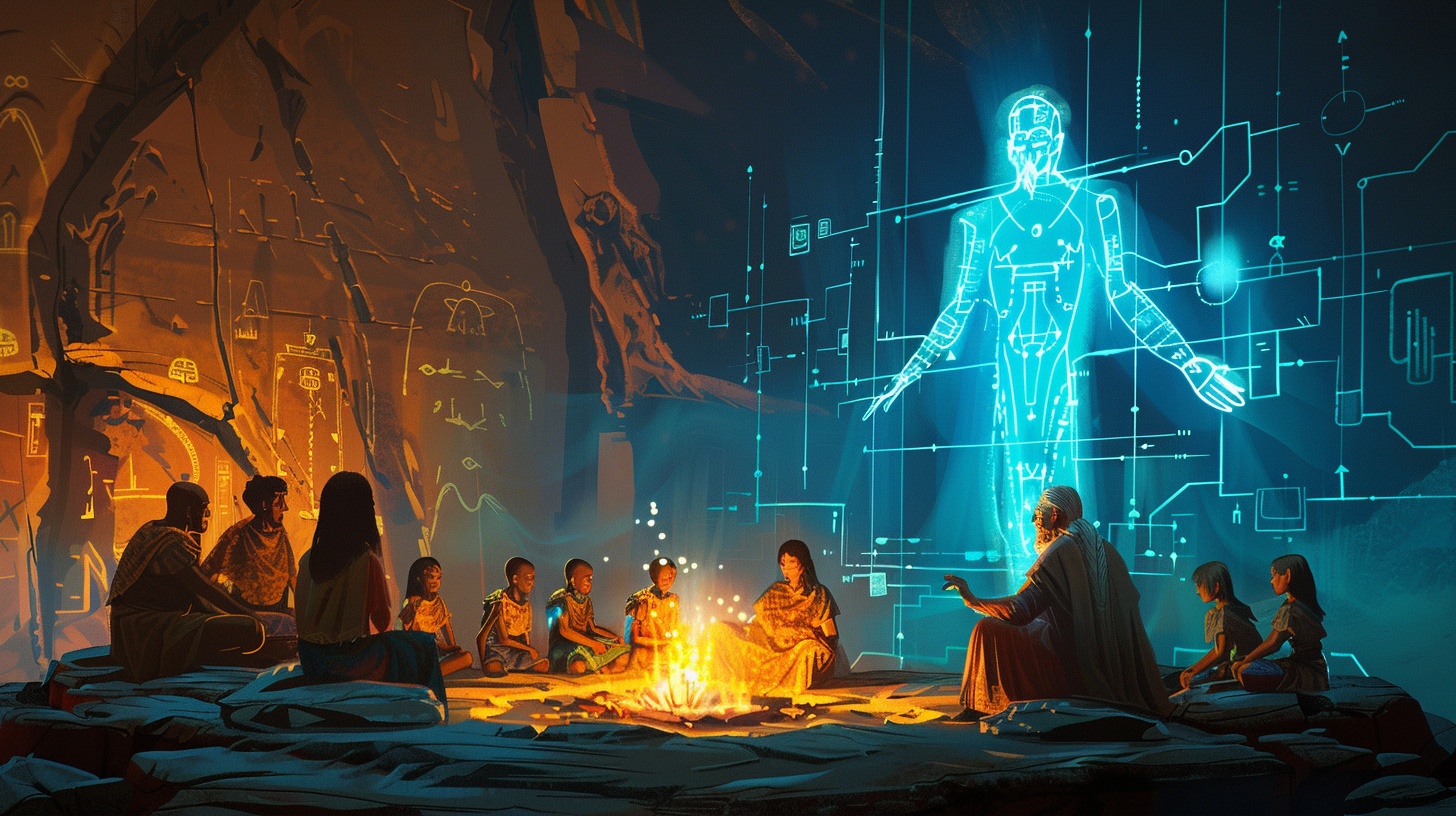In our digital age of databases, wikis, and cloud storage, it’s easy to forget that humans have been managing knowledge for millennia. Long before the written word, our ancestors developed a sophisticated system for preserving and transmitting vital information: storytelling. But was this merely entertainment, or something more?
The Power of Narrative
Imagine a world without books, computers, or even writing. How would you ensure that crucial information about your history, values, and survival skills gets passed down accurately through generations? This was the challenge our ancestors faced, and their solution was simple and effective: they turned knowledge into stories.
Why Stories Work
Stories weren’t just chosen for their entertainment value (although that certainly helped). They were an effective vehicle for knowledge management for several reasons:
- Memorability: The human brain is wired for narrative. We remember stories far more easily than we recall lists of facts or instructions.
- Engagement: An engaging story captures attention and holds it. This ensured that listeners absorbed the entire message, not just fragments.
- Emotional Connection: Stories that evoke emotions create stronger, more lasting memories. This increased the chances of accurate recall and transmission.
- Motivation to Share: People naturally want to share great stories. This desire helped propagate the embedded knowledge widely through communities.
More Than Tales
These weren’t simple stories. Myths, legends, and folktales were often complex vessels carrying multiple layers of information:
- Historical events and cultural heritage
- Moral and ethical guidelines
- Practical skills and knowledge
- Cosmological and spiritual beliefs
The Ultimate Test: Time
The effectiveness of this system is evident in its longevity. Many myths and legends have survived for thousands of years, often maintaining remarkable consistency in their core elements despite being transmitted orally across vast distances and through countless generations.
Lessons for Modern Knowledge Management
While we have new tools at our disposal, the principles that made storytelling such an effective knowledge management system are still relevant today:
- Make it Engaging: Information that captures interest is more likely to be remembered and shared.
- Use Narrative Structure: Framing information in a narrative context can improve understanding and retention.
- Evoke Emotion: Emotional connections to information make it more memorable.
- Encourage Sharing: Create content that people want to pass on to others.
- Layer Information: Complex ideas can be communicated through stories with multiple levels of meaning.
Conclusion
The next time you hear a myth or legend, remember: you’re listening to a story, experiencing one of humanity’s oldest and most effective knowledge management systems in action. In our quest to manage and share knowledge in the digital age, we might find that our ancient storytellers still have much to teach us.

Leave a Reply